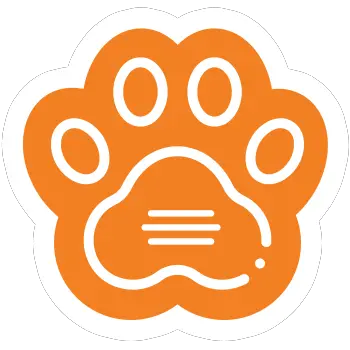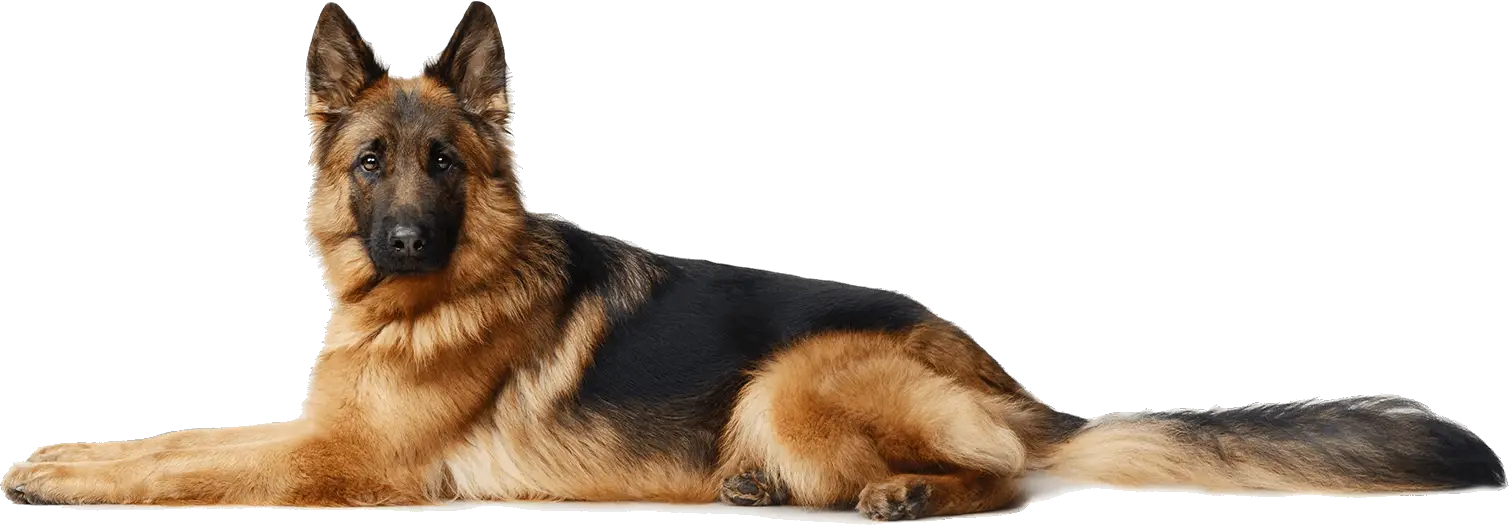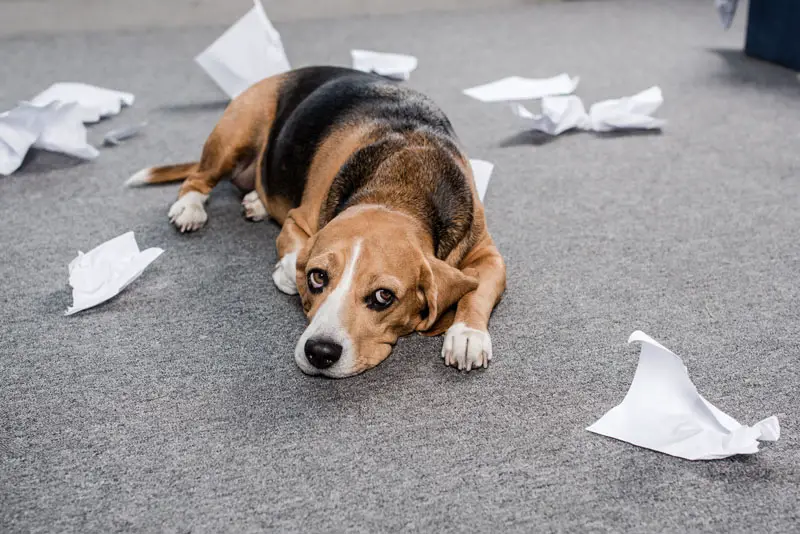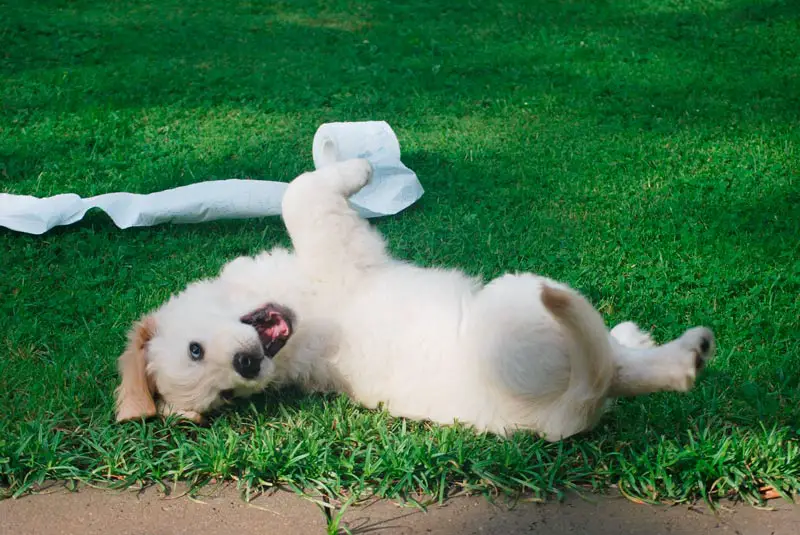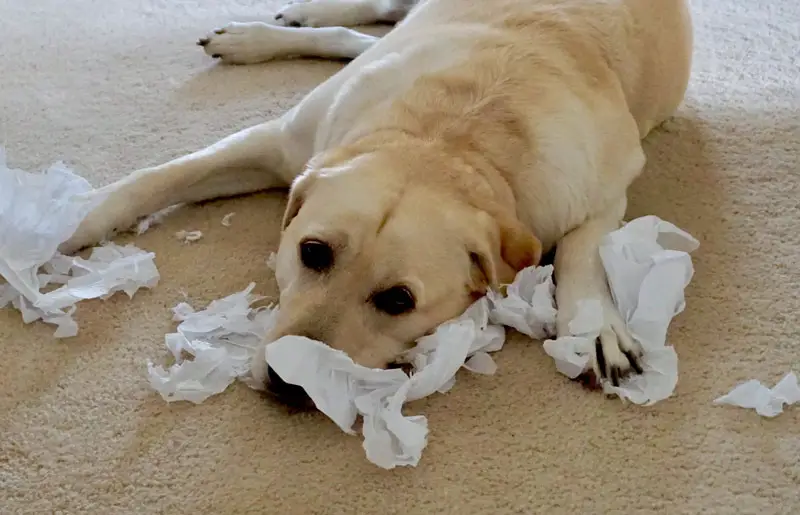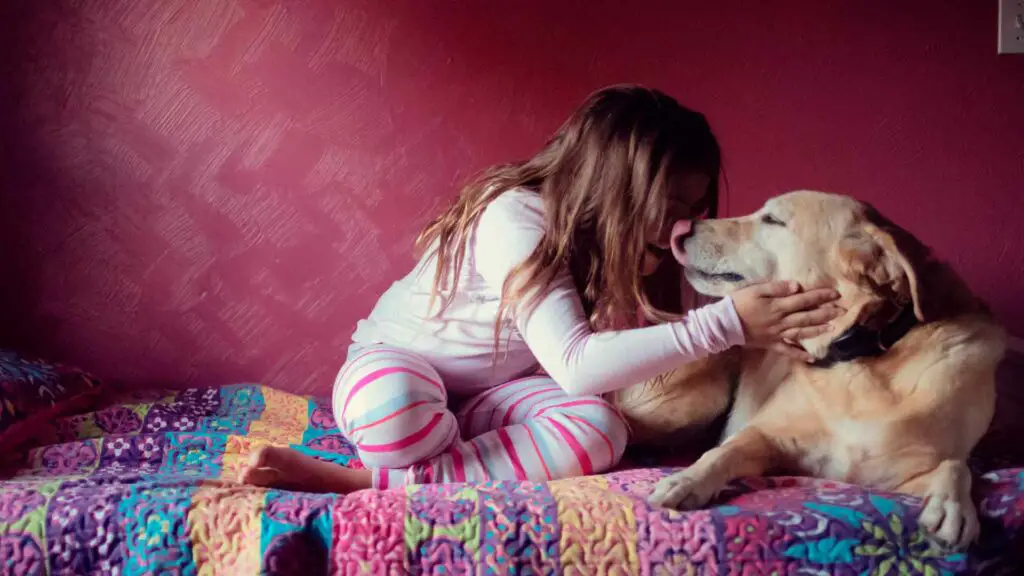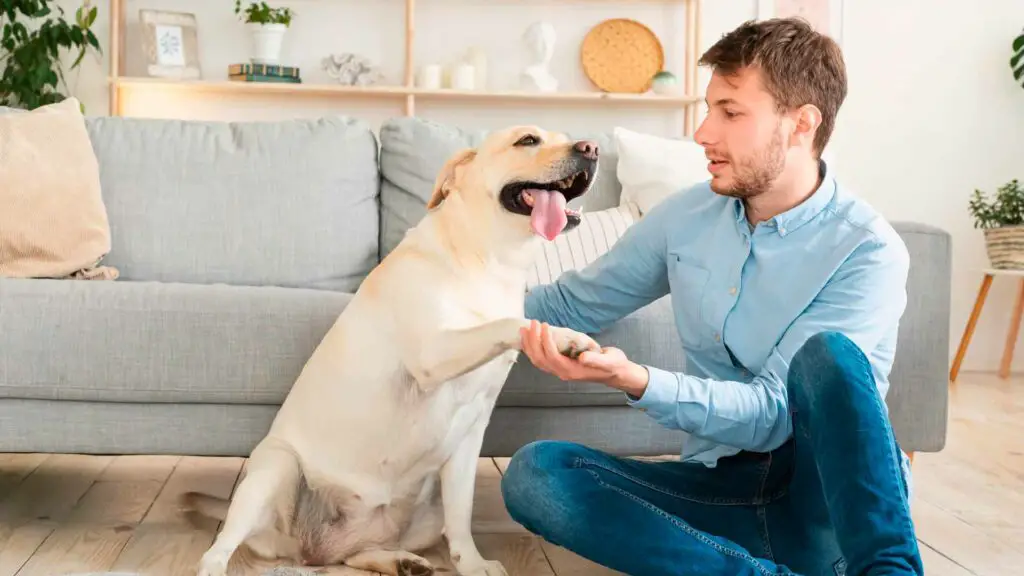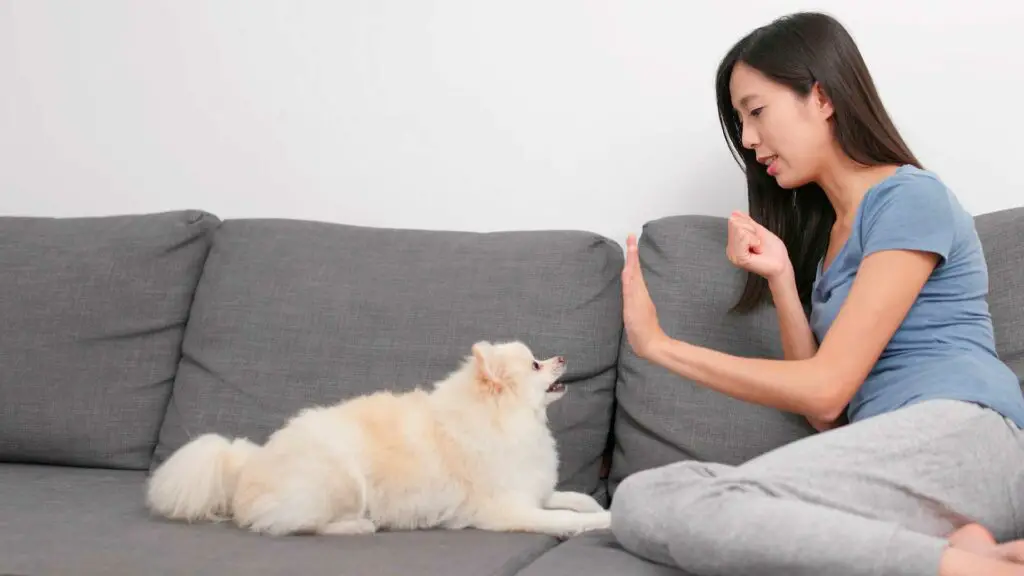Why Do Dogs Eat Tissues?
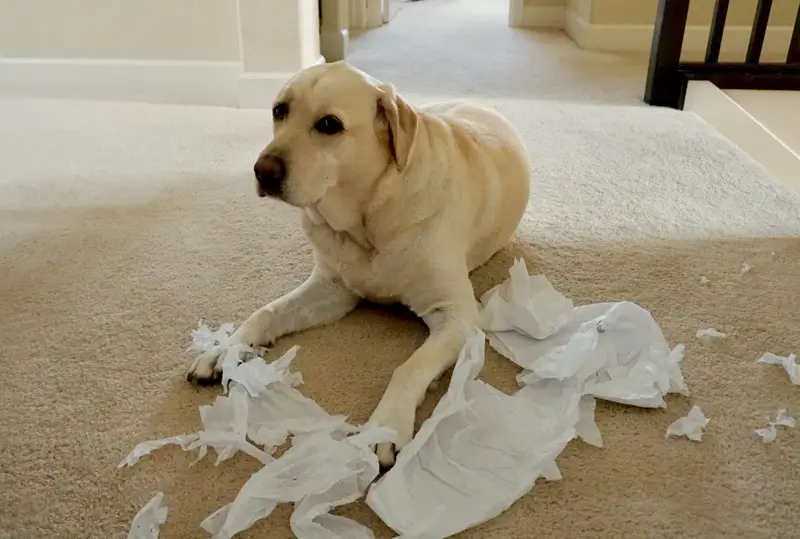
These tissue-eating habits’ causal factors range from boredom, fun, taste, and many more. Let’s look at each one of the main ones below.
Source of Entertainment
Apart from their inherent hunting instincts, dogs chew on tissues as they find the whole activity amusing and fun. As a dog owner, if you do not spend enough playtime with them, they will indulge in these kinds of alternatives.
They will perform such acts to entertain themselves by ripping, tearing, shredding, and running around torn toilet papers. Additionally, the huge mess that comes along with it at your house.
Anxiety and Boredom
When dogs have nothing to do, they may get stressed and anxious. This mood can make them perform destructive actions like eating and tearing tissue papers.
Your puppy is crying for help and craving immediate attention when left alone for several hours (Separation Anxiety). Mental stimulation is a crucial element for any dog’s health and well-being.
Pica
If dogs suffer from Pica, they will feel the urge to eat non-food items, including tissue papers. This condition is a recognized medical illness that creates a sense of compulsiveness to consume entities like rock, grass, metal, paper, etc.
As responsible dog owners, ensure eliminating this issue at the earliest so that your dog does not suffer from choking, poisoning, or other issues due to these materials’ consumption. Digestive imbalances, liver disease, pancreatic abnormalities, and neurological problems are linked with this condition.
Some of the common reasons behind Pica includes:
- Hormonal imbalance
- Nutritional Issues/Eating disorder (Zinc deficiency)
- New environments
- Diabetes
- Mental stress
Pica is a serious cause of concern. We strictly advise you not to involve yourself in self-treating your dog. Always seek the help of professional dog trainers or registered veterinarians. A checkup involving a blood test, stool sample would be necessary to arrive at the exact medical issue with your pup.

